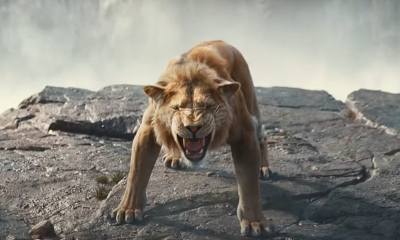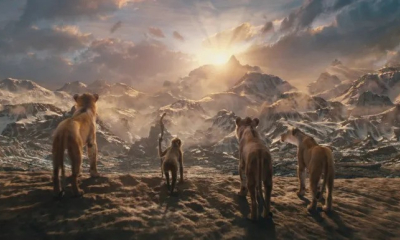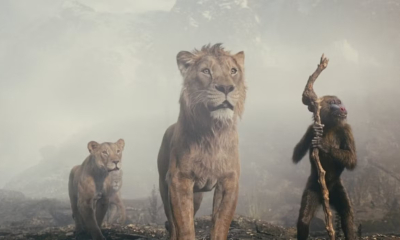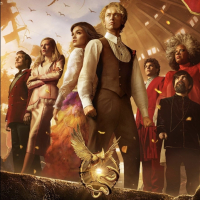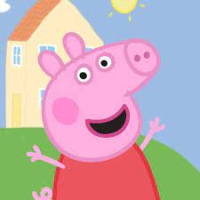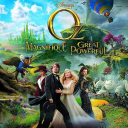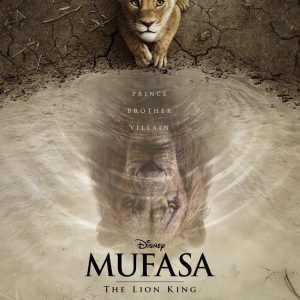
Mufasa: The Lion King Review
The first moment I laid eyes on "The Lion King," I was instantly transported back to the wilderness of Africa, with its vibrant imagery and compelling narrative. It wasn't just a film; it was an experience, a grand opera that played out on the savannah stage. My first brush with "The Lion King" was like meeting an old friend - familiar yet filled with new insights and revelations.
The history of "The Lion King" is colossal in its impact and origins. Released in 1994, it was Disney’s 32nd animated feature. Unlike many of its predecessors, which were adaptations of well-known fairy tales, "The Lion King" was an original story. Nevertheless, it drew inspiration from Shakespeare’s "Hamlet" as well as biblical tales, crafting an epic journey of self-discovery.
The Allure of the Pride Lands
The allure of "The Lion King" lies in its rich tapestry of themes and its majestic setting. The African savannah is not just a backdrop; it’s a character in itself. The opening sequence, with the iconic "Circle of Life" resonating in harmony with the rising sun over Pride Rock, promises an adventure that is both grand and intimate. The landscape is as much about the physical environment as it is about the emotional realm of the characters.
Why is "The Lion King" interesting to me? It weaves a universal tale of growth, loss, and redemption with an African palette. The wildlife, the culture, and the vibrant colors conjure a world that feels real and alive. This makes every viewing special — like turning the pages of a beautifully illustrated chronicle.
A Cinematic Masterpiece in Voice and Music
The film’s voice cast is a feather in its cap, each actor breathing life into their character. James Earl Jones as Mufasa was a choice that brought gravitas and warmth, resonating like a familiar melody through the halls of my memory. Just the mere timbre of his voice embodies kingdoms and legacies.
This auditory spectacle is complemented by Hans Zimmer’s enchanting score. The integration of Elton John’s music and Tim Rice’s lyrics struck a chord that lingers. Each song serves its purpose, further propelling the story while remaining a standalone masterpiece. The soundtrack does more than entertain; it enriches the narrative tapestry, making scenes unforgettable.
Animation: A Dance of Nature
The animation technique was revolutionary at the time. The innovative use of CGI blended with traditional animation techniques offered depth to the characters and their surroundings. Watching the wildebeest stampede was like attending a grand ballet performance, choreographed with mathematical precision and emotional chaos.
What captivated me, and what will enthrall future generations, is the fluidity and grace with which the animals move. They might not speak in the manner of humans, but their actions convey worlds of emotion. This anthropomorphic language breaks down barriers and forges connections on a primal level.
Narrative Richness and Personal Connection
"The Lion King" is not just a story for children; it is a multi-layered narrative that addresses different audiences in distinct but overlapping ways. As a child, the film is an adventure. As an adult, it becomes a profound exploration of life’s cyclical realities. This multifaceted narration is why it remains evergreen, relevant, and poignant.
My personal connection to Simba’s tale mirrors my own endeavors and discoveries. The journey from innocence to responsibility, the grappling with identity, and the courage to face demons — these universal themes resonate profoundly, mirroring life’s own unpredictable arcs.
Identity and Responsibility
Simba’s odyssey is a quest for identity. Each stage of his life brings about new challenges and revelations. As a carefree cub, his world is simple. But the weight of Mufasa’s death catapults him into realms of self-doubt and introspection. His inevitable return to Pride Rock symbolizes a universal truth — the past must be confronted to reclaim one’s destiny.
This exploration of identity is why “The Lion King” is a coming-of-age narrative that surpasses geographical and cultural borders. It reveals that, at the heart of existence, is the drive to find oneself, fulfill one’s role, and understand the responsibilities that accompany it.
Philosophical Undertones
The philosophical undertones of “The Lion King” are deeply woven into its vibrant tapestry. Through characters like Rafiki, who embodies wisdom, and Scar, who exemplifies jealousy and greed, the narrative delves into the nature of good and evil. These characters offer valuable insights into the human condition, prompting viewers to reflect on their inner turmoils and triumphs.
The tension between destiny and choice, represented through the recurring motif of the “Circle of Life,” challenges audiences to consider their place within this cycle. It reminds us of our interconnectivity and responsibilities toward one another and the world.
A Visual Spectacle
Visually, the remake brought an avant-garde level of realism but perhaps at the cost of emotional immediacy. Whereas the 1994 version’s animation afforded room for exaggeration and theatrical expressions, the advanced CGI placed realism front and center.
While it was a technological marvel, evoking the texture of actual wildlife, the emotional expressiveness found in traditional animation sometimes felt restrained. This contrast prompted me to reflect on the relationship between visual realism and emotive storytelling.
The Narrative's Heartbeat
The heartbeat of "The Lion King" lies in its universal themes of family, loss, and redemption. It’s a tapestry that interweaves humor with heartbreak with precision. From Timon and Pumbaa’s infectious antics to Zazu’s dedicated service, the supporting cast enriches the narrative, offering levity and life lessons in equal measure.
What remains most endearing is the film’s bravery in addressing difficult themes. It captures the complexity of grieving, the necessity of facing one’s fears, and the empowerment found in forging one’s path — all while maintaining an approachable narrative for younger audiences.
A Lesson in Courage
Simba’s journey is a testament to courage — the courage to accept one’s past, to grow, and to rule with wisdom and compassion. It teaches that courage is entwined with vulnerability and that strength comes from unity and understanding — messages crucial for both children and adults to absorb.
Each confrontation Simba faces is an allegory for those we encounter in our lives. Confronting Scar is not just about reclaiming the throne; it symbolizes the trials we must endure to define who we are and who we can become.
Family Bonds
The foundation of "The Lion King" is the power of familial bonds and friendships. It underscores the importance of community, showing how each individual’s contribution upholds the whole.
Through the compelling dynamics between characters, the film beautifully illustrates how families can be both a source of strength and a challenge, providing lessons on loyalty, love, and resilience.
An Unforgettable Legacy
The legacy of "The Lion King" extends beyond the screen, becoming an integral part of cultural and cinematic history. Its storytelling prowess laid the groundwork for other tales of heroism and heart.
The stage adaptation, theme park attractions, and enduring merchandise underscore its universal appeal, proving its timelessness and relevance across generations and cultures.
Reflections on Innovation
In retrospect, "The Lion King" showcases Disney’s commitment to innovation. From its pioneering narrative to its fusion of artistic methods, each iteration pushes boundaries while staying true to the essence of the original.
My visits to each version of the Pride Lands remind me of the capacity for stories to evolve while maintaining their core — an essential component of storytelling heritage.
Final Impressions
What remains with me after each viewing of "The Lion King" is a contemplation of life’s grand design and our part within it. It invokes a sense of wonder and introspection, encapsulating the beauty of storytelling as both a mirror and a guide for life’s journey.
The tale of Simba and the Pride Lands serves as a reminder of the enduring power stories have to teach, to guide, and to illuminate the path ahead.
Conclusion: A Testament to Timeless Storytelling
"The Lion King" is a masterpiece that integrates the richness of sound, narrative, and innovation in a symphony of visual and emotional grandeur. It maintains a legacy of courage, wisdom, and resilience, both on-screen and in life.
Its impact is not solely in the viewing but in the reflection it inspires, holding a magic that transcends time and generation. It remains a beacon of storytelling excellence, a testament to the idea that while times change, the essence of great narratives remains eternally compelling.
Screenshots
